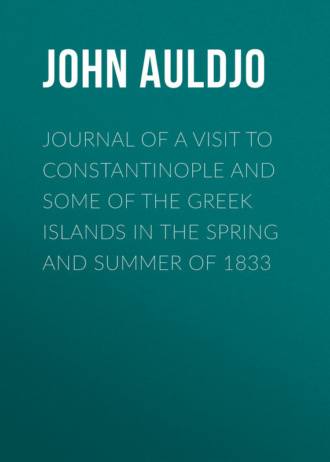Journal of a Visit to Constantinople and Some of the Greek Islands in the Spring and Summer of 1833
 полная версия
полная версияJournal of a Visit to Constantinople and Some of the Greek Islands in the Spring and Summer of 1833
Язык: Английский
Год издания: 2017
Добавлена:
Настройки чтения
Размер шрифта
Высота строк
Поля

